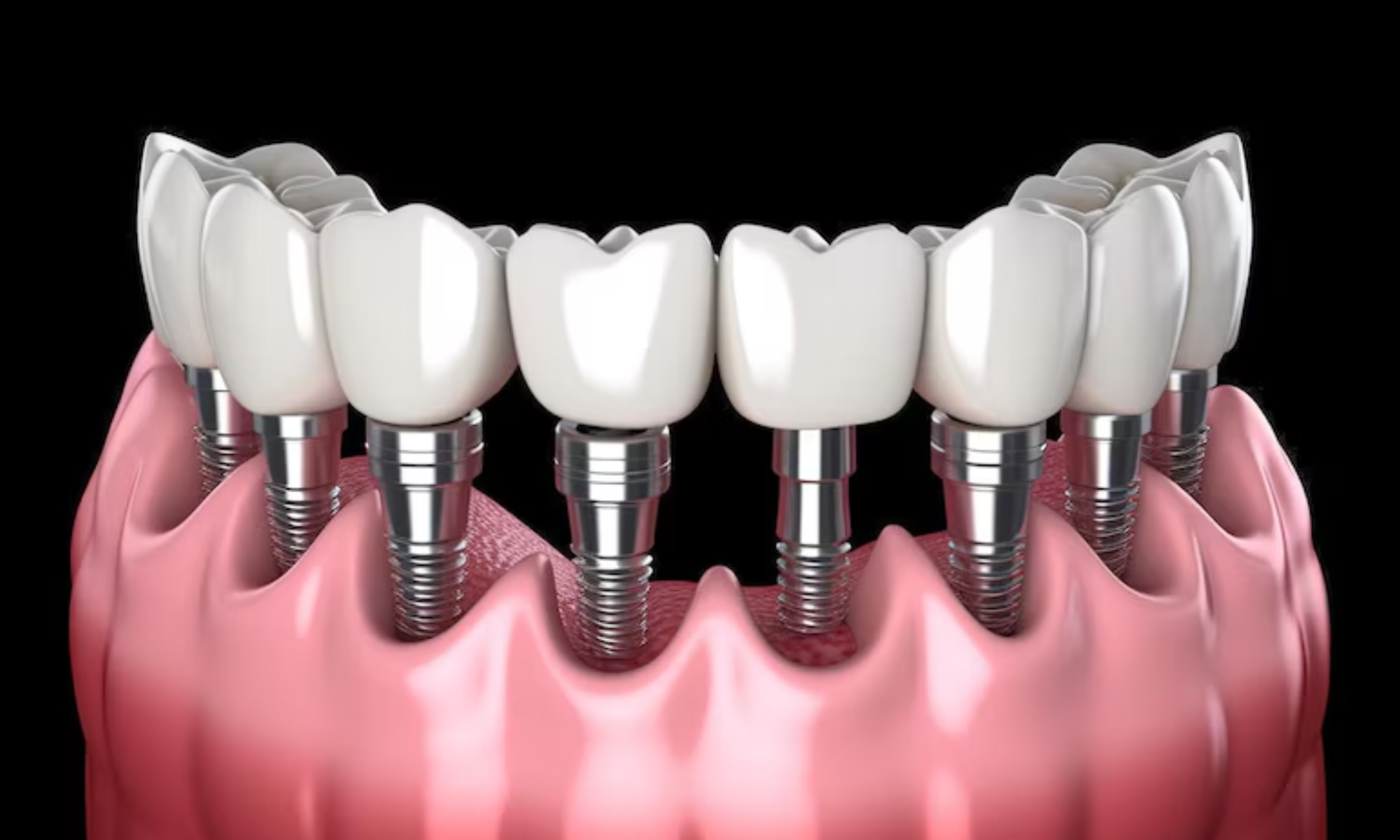
How Long Do Dental Implants Last?



In the realm of modern dentistry, dental implants have emerged as a revolutionary solution for replacing missing teeth. They offer not only aesthetic benefits but also improved functionality and comfort. Understanding the durability and lifespan of dental implants is crucial for making informed decisions about tooth replacement options. In this article, we delve into the factors influencing implant longevity, explore clinical research, and provide insights into maximizing the lifespan of these remarkable dental innovations.
What Are Dental Implants?
Dental implants are sophisticated restorative devices designed to mimic the structure of natural teeth. Comprising three main components—the implant post, the abutment, and the dental crown—they work together to create a resilient and lifelike replacement for a missing tooth. The implant post, usually made of titanium, is surgically placed into the jawbone, providing a sturdy foundation for the abutment and crown.
Factors Affecting Implant Longevity
The durability of dental implants is influenced by various factors, both within and beyond the patient’s control. Maintaining excellent oral hygiene practices, following post-surgery instructions, and attending regular dental check-ups are essential components of implant care. However, systemic health conditions, lifestyle choices like smoking, and poor bone quality can also impact the longevity of implants. Adhering to a healthy lifestyle and seeking guidance from dental professionals can mitigate these risks. Some factors that affect dental implant longevity include:
- Oral Hygiene: Consistent and thorough oral hygiene practices, including brushing, flossing, and rinsing, play a significant role in preventing complications that could affect implant longevity.
- Post-Surgery Care: Adhering to post-surgery instructions provided by your dentist promotes proper healing and reduces the risk of infections or implant failure.
- Overall Health: Systemic health conditions, such as diabetes or autoimmune disorders, can impact the body’s ability to heal and maintain implant health.
- Lifestyle Choices: Habits like smoking and excessive alcohol consumption can compromise blood flow, delaying healing and increasing the risk of implant-related issues.
- Bone Health: Adequate bone density and quality are crucial for successful implant integration. Conditions like osteoporosis or bone loss may affect the implant’s stability.
- Regular Dental Check-ups: Routine visits to your dentist allow for early detection of potential issues, ensuring timely intervention and preserving implant health.
- Bite and Occlusion: Proper alignment of the implant within your bite pattern is essential for preventing undue stress on the implant and surrounding structures.
- Implant Maintenance: Regular dental cleanings and professional check-ups help monitor the condition of your implants and address any concerns promptly.
- Implant Design and Material: The choice of implant design and material, along with the expertise of your dentist, contributes to the long-term success of the implant.
- Gum Health: Healthy gum tissues around the implant are essential to prevent infections and inflammation that could compromise implant stability.
By considering and actively addressing these factors, you can significantly contribute to the longevity and success of your dental implants.
Average Lifespan of Dental Implants
When considering the lifespan of dental implants, it’s important to distinguish between short-term and long-term success rates. Short-term success rates, often evaluated within the first year after implant placement, typically exceed 95%. Long-term success rates, assessed over a span of 10 to 20 years, remain impressive at around 85% to 95%. While individual experiences may vary, these figures provide a general understanding of the longevity achievable with dental implants.
Longevity of Different Implant Types
The longevity of dental implants can vary based on the type chosen. Traditional implants have a proven track record of durability and can last for decades with proper care. Mini implants, a smaller alternative, may have a slightly different lifespan due to their reduced size and intended use. The choice between these options depends on individual needs and anatomical considerations, and your dentist can provide guidance on selecting the most suitable implant type.
Maintenance and Care
The key to maximizing the lifespan of dental implants lies in meticulous maintenance and care.
Some ways to care for your dental implants are:
- Consistent oral hygiene, including brushing and flossing, prevents plaque buildup.
- Regular dental cleanings and check-ups monitor implant condition.
- Professional oversight detects early signs of complications.
- Proper post-surgery care aids healing and reduces risks.
- Avoid smoking and excessive alcohol consumption.
- A balanced diet supports overall oral health.
- Address systemic health conditions promptly.
- Protect the implant by wearing a mouthguard during physical activities.
- Be vigilant for signs of implant-related issues.
- Seek immediate professional attention for concerns.
Signs of Implant Complications
- Persistent Pain: Unexplained or persistent discomfort around the implant site could indicate potential issues with the implant or surrounding tissues.
- Swelling: Swelling of the gums or tissues around the implant may signal inflammation or an underlying problem.
- Mobility: Any noticeable movement or shifting of the implant can be a sign of implant instability or failure.
- Changes in Bite: Sudden changes in your bite alignment could suggest implant-related problems affecting your oral function.
- Discomfort While Chewing: Pain or discomfort while chewing may indicate a problem with the implant’s integration or surrounding structures.
- Gum Bleeding: Bleeding or tenderness of the gums around the implant site could point to gum disease or other complications.
- Receding Gums: Receding gums may expose the implant post and compromise its stability.
- Persistent Bad Breath: Unpleasant breath that persists despite proper oral hygiene could be a sign of infection or implant-related issues.
- Visible Changes: Any visible changes, such as swelling, discoloration, or unusual lumps, should be examined by a dental professional.
- Loose or Lost Restoration: If the dental crown or abutment becomes loose or falls off, it requires immediate attention to prevent further complications.
Enhancing Longevity: Expert Recommendations
Dental professionals offer valuable recommendations to extend the lifespan of dental implants. These include maintaining optimal oral hygiene practices, refraining from smoking, adopting a balanced diet, and managing systemic health conditions. Regular dental visits enable early detection of any concerns, ensuring timely intervention and preserving the integrity of your dental implants.
Source: Dental Implant Procedure Options
Dental implants have revolutionized tooth replacement by offering a durable and natural-looking solution. While the lifespan of dental implants can vary based on several factors, they have demonstrated remarkable longevity in clinical studies. By prioritizing oral hygiene, seeking professional guidance, and making informed lifestyle choices, you can significantly enhance the durability of your dental implants, enjoying the benefits of a confident smile for years to come.








